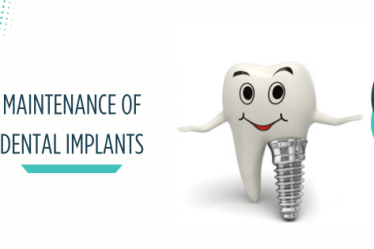
Deciding to get dental implants is a significant decision that can dramatically improve a person’s oral health and overall quality of life. However, not everyone is a suitable candidate for this treatment option. Let’s look at the qualifications for an ideal dental implant candidate, explore who might have complications or unsuitability, and discuss why it is important to create a treatment plan that is tailored to each individual.
Ideal Candidates for Dental Implants
An ideal candidate for dental implants typically has the following qualifications:
- Healthy gums and enough jawbone: Dental implants need a strong foundation, which is why individuals should have sufficient jawbone density and healthy gums. The titanium implant post that surgically fuses with the jawbone provides the strength and stability required to support the artificial tooth.
- Good overall health: Dental implant surgery is a significant procedure that demands a healthy body for recovery. Patients with chronic conditions like diabetes or heart disease may need particular attention and may not be suitable candidates.
- Commitment to good oral hygiene: To ensure the longevity of the dental implants, the candidate should be committed to maintaining excellent oral hygiene—regular brushing, flossing, and follow-up dental visits.
- Non-smokers: Smoking considerably slows down the healing process and increases complications after surgery. Therefore, non-smokers or those ready to quit are ideal candidates.
Potential Concerns in Certain Candidates
Although dental implants boast a high success rate, not all individuals are suitable candidates. Some may experience complications, while others should avoid this treatment altogether.
- Children and teenagers: Since their jawbones are still developing, dental implants are not typically recommended for children and teenagers.
- Pregnant women: Most dental professionals suggest postponing implant surgery until after delivery to avoid potential complications.
- Individuals with chronic diseases: Conditions such as uncontrolled diabetes, cancer, and periodontal disease can affect the body’s ability to heal and directly interfere with the success of dental implants.
- Heavy smokers: The reduced bone quality and diminished healing capacity make heavy smokers less suitable for dental implants. Nevertheless, if a patient can quit smoking, their eligibility for implants may be reconsidered.

The Importance of Individualized Treatment Planning
While dental implants can be life-changing, it is crucial to remember that each patient is unique. What works for one person may not work for another due to differences in oral health, overall health, and lifestyle preferences. Therefore, the importance of consultation and establishing an individualized treatment plan cannot be understated.
During an initial consultation, the dentist will review the patient’s medical history, conduct a thorough dental examination (including X-rays and possibly a CT scan) to assess the condition of the jawbone and oral structures, and discuss the patient’s goals and desired outcomes.
This stage of the process opens up the opportunity for the dentist to propose a suitable treatment plan, whether it involves dental implants, other options, or a mix of different strategies. Patient engagement and understanding are highly encouraged throughout this process to arrive at an optimal solution.
Conclusion
In conclusion, dental implants represent a revolutionary technique in restorative and cosmetic dentistry offering a long-term solution to missing teeth. The selection of suitable candidates is a meticulous process focused on ensuring safety and achieving the best results. Nevertheless, people who might not initially qualify for implants are not left helpless. Other dental procedures can be utilized as part of a comprehensive treatment plan aimed at restoring a confident and healthy smile.
It is worth considering the benefits and requirements of dental implants and discussing them with a dental professional. Whether you’re an ideal candidate or are currently ineligible for treatments, exploring different options with an experienced dentist will provide a better understanding of what’s necessary to improve your dental health and enhance your quality of life.


